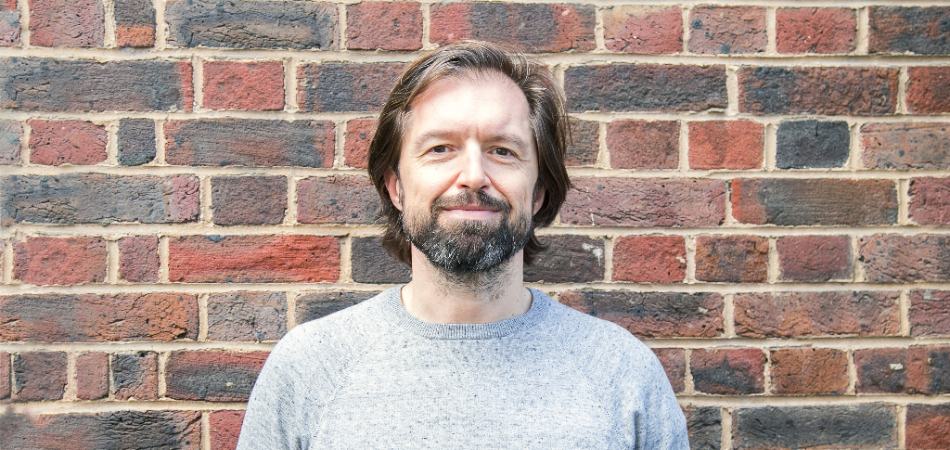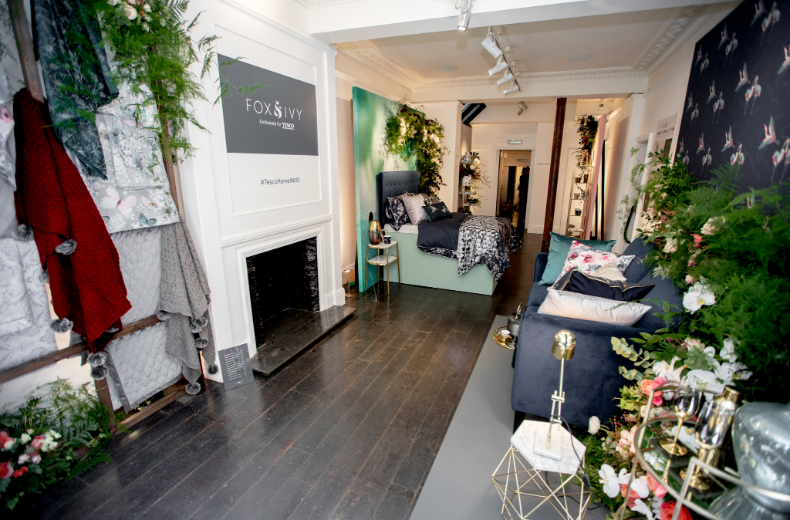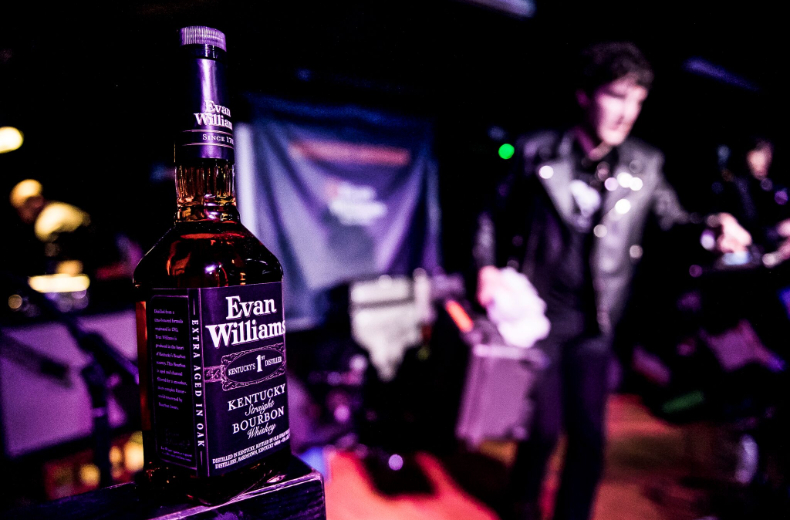
CoppaFeel brand refresh aims to reach a new generation
The charity has worked with Livity to encourage young people to check their chest
“Now, great work is still cultural, but it needs to be positive, in a way that makes a positive impact on culture. That needs to be the focus of everything because that's the way the world is now."


Career to date:
2004, Founder & CEO, Splendid
2000, Head of Brands, Slice PR
1989, Director of Global FMCG, Datamonitor
Alec Samways: Niki [Hunter-Ekins, MD & Head of Client Partnerships] and I work side by side. We create a plan together each year with our senior team. Niki’s job is more the day to day implementation of that plan and building client partnerships, I focus on setting the direction of the agency along with the values and culture that define Splendid and overseeing our creative output.
Alec Samways: It’s a shaggy dog tale, I’ll go back to the beginning! It all starts with my passion for music, something instilled in me as a child. In our family it was our number one bonding thing, listening to certain types of music. I chose my university, Warwick, because they had a radio station and I wanted to DJ there. But I was also lucky enough to end up with a first-class degree. And that created a pressure for me in a way because, you didn’t go into the music business on the back of a first-class degree.
I ended up a management consultant by day, doing brand strategy and research for corporates. By night that’s when my DJ career carried on and that was good. Datamonitor, the consultancy, was a start-up and I was put in charge of the consumer division at quite a young age, 23, managing a team. We grew the business quite rapidly, but it was a lot of responsibility and what I found was, although the career was very rewarding and exciting and I learnt loads, it was squeezing out the DJing.
In the end I didn’t know what to do, so, I took a year off, left my job, and went travelling. Before I went travelling I rang round everybody I knew remotely connected with music and offered my services for free. I ended up working for an agency called Slice who then specialised in music. They had practically cornered the market in dance music PR clients: labels, DJs, clubs and festivals. It really chimed with my passion and interest for culture, not just music, but the way culture and the world are shaped.
In the end, after a year away, I came back to lead the Brands team at Slice and we were really successful. The first big client I worked on was Levi’s. We ran their European music strategy and did some really cool things for them with Destiny’s Child and OutKast, almost always wrapped up with the launch of a range of denim. We worked on the launch of Xbox in the UK as well as Southern Comfort, creating its music program. We also did a global music program for Heineken called Thirst, touring the world with headline DJs.
Then I got headhunted by the combination of an ad agency and a media agency who were looking to do a PR company. Somebody had recommended me to them and they talked to me for a bit about starting a new kind of agency. But my last project for Slice made me realise that, if I was to fulfil this vision of a real-world agency that commanded the respect that ad agencies did, doing so backed financially by two agencies from the world of advertising probably wasn’t the best start. We’d end up subservient which is what I was trying to break away from.
In the end I did it by myself and that was Splendid. The intention was never to be a pure PR play. I wanted to launch an agency that offered the strategic capability of an advertising agency, to be considered further upstream where the briefs were still open, but with the cultural understanding and connections that I’d learned in my time at Slice.
“The intention was never to be a pure PR play. I wanted to launch an agency that offered the strategic capability of an advertising agency...but with [a] cultural understanding."
Alec Samways: The project that set the tone for Splendid was a Levi’s project. They had done a t-shirt which used the album artwork from a band from the 1960s called the MC5. The three surviving members of the MC5 had ended up in court with Levi’s because it was breach of IP. Then Wayne Kramer, the lead guitarist of the band, emailed someone high up at Levi’s and said, OK, now we’ve settled, shall we do something together?
I said, let’s get them to do a reunion. Let’s do a gig in London, let’s get famous artists that were inspired by them to be part. Which is what we did and it was an amazing gig. Fans benefitted, the band themselves benefitted, the client got a shit load of publicity because it was quite controversial that this revolutionary, anti-corporate, anti-conservative punk band from the 60s was working with a corporate. And it had a cultural impact. A global impact. I thought that’s what I want to do for everything, I want an agency that has that ethos at its core.
Your question was what makes you different. It’s that approach to strategy. We recognise clients need strategy. There’s no point doing anything without strategy. It’s just a waste. I guess because we’ve always been obsessed with real people and connecting with real people beyond the industry bubble, we’ve trade marked an approach which we call people-first creativity. It’s not competing with the kind of strategy that you’d get from a media agency or advertising agency. We present it as complimentary. They’ve got the data, the science. We don’t have that to the same extent. But what we do have is an understanding of the real world and how ideas land in the real world and become part of culture, become genuinely talked about, and increasingly we can measure that too.

Alec Samways: Firstly, that’s not my style. We’d always say you’re only as good as your last gig. So, today we’re all buzzing because we’re doing the AW18 homeware launch event for Tesco and the Tesco clients have come down and said this is the most premium looking event we’ve ever done for our GM range. We’re not ones for looking back, resting on our laurels. Next, we’re going down to the Great Escape in Brighton, doing an activation for a new client called Evan Williams which was, in fact, the first bourbon to be made in Kentucky. But no one’s heard of it. We want to help them punch above their weight and get on the radar.
Alec Samways: There’s an astonishing amount of creativity out there. We constantly see creatives and artists not doing it for brands or even commercial value, who come up with a new way to just be creative. Making artwork out of Excel spreadsheets or miniature food. All the purpose stuff is provoking a lot of discussion at Splendid. We all love the Dove Campaign for Real beauty, and Dirt is Good from Persil, supporting the Coalition for Real Play, I love that stuff. But now everything is coming with a purpose and so we’re always debating the merits or not. Done well it's brands as a force for good, done badly it's brands stealing the equity of the disadvantaged.
On a different note, the thing that we all universally loved was the Childish Gambino ‘This is America’ video. Then, there’s a story that’s been in Mixmag about clubbers in Georgia where the authorities are clamping down on nightlife and club licences, who just did a massive street rave in Tbilisi, in front of the houses of parliament. That’s what I call real cultural impact!
“Now, great work is still cultural, but it needs to be positive, in a way that makes a positive impact on culture. That needs to be the focus of everything because that's the way the world is now. The public expect it. They don't want you to just sell them shit."
Alec Samways: I’m always impressed by what the Australian agencies do at Cannes. They’re always so well represented in those awards. It’s quite galling in a way to see integrated, advertising-led agencies constantly winning the PR Lions. I suppose that’s the dream to be able to work with an advertising agency and a media agency to create very PR-able, real world assets with the kind of budgets and data that they have.
Alec Samways: I think it has to be like that. There is much more receptiveness now from advertising agencies to what PR can deliver for them. I’m often amazed how there’s just a lack of understanding of what PR is. It’s still considered something of a dark art. We need more open, genuinely collaborative integration. There is a much greater desire from clients and ad agencies to collaborate and open up the upstream briefs to agencies like us than there was when we started.

Alec Samways: The ambitions for Splendid are the same as they always were. To do great work that is led by a real-world, PR sensibility so it’s efficient, effective and connects with real people, achieving a strategic impact. When I started Splendid great work would be defined as cultural work that generally got people talking. Now, I think great work is still cultural, but it needs to be positive, in a way that makes a positive impact on culture. That needs to be the focus of everything because that’s the way the world is now. The public expect it. They don’t want you to just sell them shit. The industry is more aware, and it needs to be, because it’s all our responsibility.
Alec Samways: My kids. My family. I always talk about my ‘home family’ and my ‘Splendid family’ and I like to bring them together. The kids come into the office on their summer holidays. They love it here. Also travelling. I love New York, there’s just such a buzz about it and everybody’s up to something. New York is the “anything is possible” capital of the world and I take a lot of inspiration from that. I’ve always had that attitude.
One of my favourite non-work pursuits is trying to balance reading books with watching telly because television is enjoying a golden age at the moment. I love reading books but there’s always something wicked on Netflix. Wild Wild Country was really absorbing, as was the documentary about John McAfee. It’s hard not to watch too much of that stuff and leave time to read books. I read ‘Sapiens’ recently and it blew my bloody mind. It gave me a bit of an existential crisis because you realise that everything is just totally fabricated. And Alain de Botton’s book, the Course of Love. He inspires me. He’s the first TED talker that I would love to have round for dinner because he just talks and talks, really fast. It’s exciting but exhausting at the same time.
The trend that we’re focused on is the idea that customers want to know more about the social, economic and environmental impact of brands. How do you evaluate that in the brands you work with?
Where we’re taking our clients is stop just talking about yourself. Go from your world into their world. What is the cultural purpose? A past successful campaign of ours is Smirnoff. All its advertising was focused on vodka credentials. We thought, who cares? Smirnoff’s audience is 18 to 24-year-olds who are out clubbing and not thinking about vodka purity or credentials. We said you’re already a leader in vodka, but your category isn’t just about a clear, tasteless, odourless spirit. Your category is about nightlife. So, don’t just lead the vodka category, lead nightlife. And so that was the journey we took Smirnoff on, helping them to establish a leadership point of view on nightlife.
Looks like you need to create a Creativebrief account to perform this action.
Create account Sign inLooks like you need to create a Creativebrief account to perform this action.
Create account Sign in